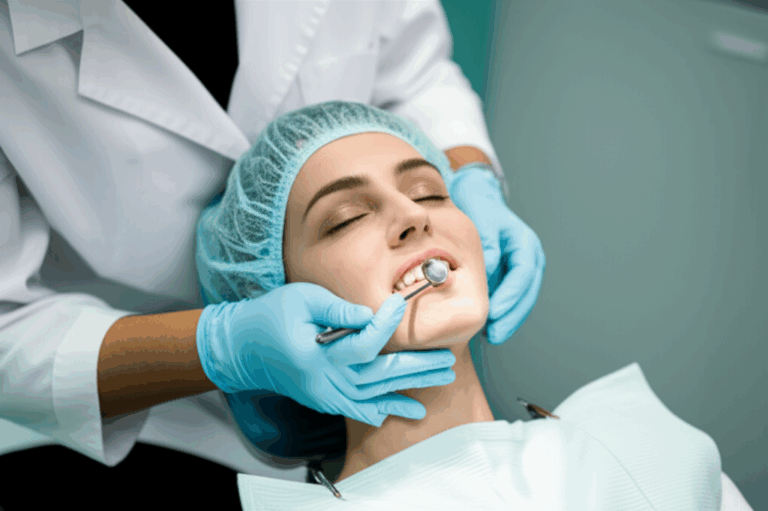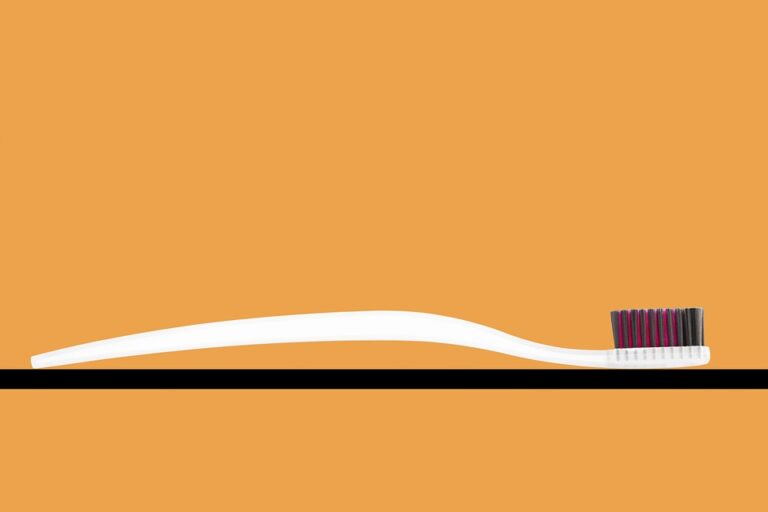
Can Dental Problems Cause Skin Problems? The Surprising Link Between Oral Health and Your Complexion
Written from my own experience, point of view, and what I’ve learned about mouth and skin health.
Introduction: My Journey Uncovering the Oral-Skin Connection
I used to think my mouth and skin had nothing to do with each other. Toothaches? Go to the dentist. Pimples or rashes? Put on some cream or see a skin doctor. It seemed easy enough.
But a few years back, that idea fell apart. I started getting rashes on my face again and again, mostly around my jaw and cheeks. At the same time, my gums were bleeding easily, I had some tooth pain, and my brushing wasn’t the best. I kept buying new skin creams and tricks, trying to fix my face. Nothing helped.
Then, a dentist friend told me: “Your teeth could be causing these skin problems.” That’s when it clicked. After looking into it, and improving how I took care of my teeth and gums, both my mouth and my skin looked much better. I wanted to know more—not just for myself, but to help anyone else who’s noticed the same thing.
Let me walk you through what I found out about how mouth problems can mess up your skin, what’s going on inside your body, signs to watch for, and what you can do to help yourself.
Table of Contents
- My Journey Uncovering the Oral-Skin Connection
- The Oral-Systemic Link: Why Your Mouth Isn’t an Island
- Dental Infections & Abscesses: When Tooth Trouble Shows Up on Your Skin
- Gum Disease: Hidden Inflammation That Reaches the Surface
- Oral Microbiome Imbalance: The Mouth-Gut-Skin Axis
- TMJ Disorders and Stress: Teeth, Jaw, and Their Reflections on Your Skin
- Other Indirect Connections Between Dental and Skin Health
- How These Mechanisms Work: From Oral Bacteria to Body Inflammation
- When to Suspect Your Skin Problems Are Dental Related
- What I Did (and What I Suggest): Diagnosis and Treatment
- Prevention: Keeping Both Your Mouth and Skin Healthy
- Conclusion: Looking at Your Whole Body Together
The Oral-Systemic Link: Why Your Mouth Isn’t an Island
One big thing I learned is this: your mouth is not by itself. It’s really connected. Everything that happens in your mouth—germs growing, swelling, even little cuts—gets into your blood, your lymph system, and eventually, your skin.
Think about it like this. Your blood and lymph are highways going all through your body. If there are “bad guys” (like germs from an infection) in your mouth, they can travel anywhere—your joints, your belly, and yep, your skin too.
Next, I’ll show you how these “visitors” from your teeth and gums can reach your skin and make problems.
Dental Infections & Abscesses: When Tooth Trouble Shows Up on Your Skin
Some time ago, I had a tooth infection in a back tooth. My cheek got really puffy, and under my jaw, the skin felt hot and looked red. I ignored it at first, but my doctor knew right away: “That’s a skin infection from your tooth.” It was a shock.
How Dental Infections Affect Skin
Here’s what happens. If you don’t treat an infected tooth or sore gums, pus starts building up (that’s germs, dead cells, and your body fighting back). Sometimes, the pressure makes a tunnel to your skin, showing up as a lump or even an oozing sore. Other times, the infection spreads through deep tissue, causing an area of painful, red, swollen skin called cellulitis. Sometimes you even get a fever.
If you have swelling in your face that’s out of the ordinary, or a stubborn sore near your jawline, check your mouth and gums. For me, antibiotics and a root canal fixed both the tooth and my skin.
Key Points:
- Tooth infections can cause swollen, red skin or even pus bumps on your face.
- If not treated, the infection can spread and get dangerous.
- Cellulitis needs a doctor right away.
Gum Disease: Hidden Inflammation That Reaches the Surface
I used to think bleeding gums were “no big deal.” But gum disease (from sore gums to serious cases) is actually a low-grade infection that makes your body full of inflammatory stuff called cytokines.
The Skin Connection
After months of gum problems, I noticed my eczema got much worse. I later learned that science supports this. Ongoing gum infections send out “trouble signals” in your blood. This makes your immune system overreact—even your skin can get red, itchy, or start to flare up with eczema or other skin problems.
When I started brushing and flossing more, and went for regular cleanings, my skin calmed way down. It’s not just luck—the research backs it up.
Known Links:
- Gum disease can make skin diseases like eczema or psoriasis worse.
- Swelling from gum trouble can weaken your skin’s protective layer.
- Even small mouth problems can cause trouble elsewhere in your body.
Oral Microbiome Imbalance: The Mouth-Gut-Skin Axis
Let’s talk germs—the ones that live in your mouth. Most are friendly, but if things get off-balance (maybe you eat lots of sugar, have bad breath, or get sick often), this “bad mix” can also mess with your gut, and as a result, your skin.
My Experience With the Gut-Skin Axis
During my worst breakouts, I also had stomach troubles. Turns out, what’s bad for your mouth germs is bad for your gut too. The gut and skin are closely tied—if your belly is upset, your skin can break out, get red, or get sensitive.
When I started using antibacterial mouthwash and eating better, my breath smelled fresher and my skin looked better. Things are really connected.
To Sum Up:
- When the good and bad germs in your mouth get out of balance, it can cause pimples or rashes.
- A “leaky gut” or messed up belly bacteria means more body swelling and skin problems.
- Small mouth care changes can lead to happier skin too.
TMJ Disorders and Stress: Teeth, Jaw, and Their Reflections on Your Skin
Ever feel your jaw hurt more when you’re stressed? I do—because I have a mild jaw joint problem called TMJ. When I grind my teeth at night or clench during the day, my face muscles and skin feel tight.
TMJ, Stress, and Skin
Pain and stress put your body in “alert mode.” Stress hormones like cortisol make your skin break out and heal slower. When my jaw was at its worst, I started noticing more breakouts, especially around my chin. Using things like a mouthguard at night and doing some jaw exercises really helped—not just my jaw but my face skin too.
Key Ideas:
- Clenching or grinding teeth can make stress breakouts worse.
- Long-term jaw pain keeps your body stressed, which is bad for your skin.
- Fixing your bite and jaw health can help your skin clear up.
Other Indirect Connections Between Dental and Skin Health
Sometimes, mouth and skin problems are linked in surprising ways. For example, bad teeth can stop you from eating certain foods.
Nutritional Deficiencies
When tooth pain made me avoid crunchy fruit or salads, my skin got dull, dry, and took forever to heal. When my teeth were fixed and eating got easy again, my skin perked up a lot.
Chronic Stress and Self-Esteem
Constant mouth pain made me grumpy and less confident—about both my smile and my looks. Stress makes almost any skin problem get worse.
Other Effects to Notice:
- Skipping healthy foods because of mouth pain hurts your skin’s healing and glow.
- Always being stressed from oral problems throws off your skin’s normal state.
- Taking care of your mouth is good for your mind and, in turn, for your skin.
How These Mechanisms Work: From Oral Bacteria to Body Inflammation
Maybe you’re wondering, “How does my mouth really mess with my skin?” Here’s what I found, in plain terms:
Gum disease or mouth infections send out chemical “help!” messages all over your body. These make your skin (and other parts) more likely to get red, swollen, or flare up with problems.
Germs from your mouth can get into your bloodstream. They can set up shop in your face and trigger skin reactions.
Ongoing tooth or gum problems keep your body’s defense system working overtime. Over time, this can spill out, leading to skin trouble, especially if your immune system is sensitive.
Some bad mouth germs spit out chemicals that hurt your body far away from your teeth—including your skin.
These ideas are backed up by studies and stories. For more details, you can find information on dental diseases and how they affect the whole body.
Data Quick Glance: When Teeth Cause Skin Troubles
Here’s a table I made based on my own experience and what I’ve learned from others:
| Dental Problem | Common Skin Issue(s) | How It Works | Notes |
|---|---|---|---|
| Dental abscess | Swelling, red or pus spots | Germs spreading, irritation | Needs quick care—fix the tooth, fix the skin |
| Gum disease | Eczema, red skin, worse rashes | Whole body swelling | Skin flare-ups often follow gum trouble |
| Mouth germ imbalance | Acne, mouth or chin rashes | Gut-skin connection, immune | Better food and mouth care really help |
| TMJ disorder | Stress pimples, painful face | Stress hormones | Mouthguard and jaw care calm it down |
| Tooth pain/missing teeth | Dull, dry skin | Less vitamins/minerals | Teeth repair = eat better = better skin |
Use this to check if your own symptoms fit the pattern.
When to Suspect Your Skin Problems Are Dental Related
Now that I know what to look for, these are the warning signs I’d pay attention to:
- Facial rashes or swelling that show up when you have tooth pain or a mouth problem.
- Skin bumps, sores, or redness by your mouth, jaw, or neck—especially if skin creams don’t do much to help.
- Eczema, acne, or redness that comes and goes—lined up with “bad days” for your teeth or gums.
- Skin getting much better after your dentist fixes a tooth or gum problem (for me, I saw changes within about a week).
If this sounds like you, your mouth may be a big reason your skin acts up.
What I Did (and What I Suggest): Diagnosis and Treatment
When I finally figured out the mouth-skin link, here’s what worked for me—and what might help you:
1. See Your Dentist First
Don’t wait. Mouth infections and gum problems need a pro to sort them out. My dentist took X-rays for hidden tooth issues, checked for gum pockets, and talked to me about brushing and flossing. Fixing my teeth led to fast skin improvement.
2. See Your Skin Doctor (and Be Honest)
Mention your dental history. I told my skin doctor I’d had mouth trouble recently, and it helped her realize why creams hadn’t worked—she needed to know the real reason behind my rash.
3. Teamwork
I tried to keep both doctors in the loop. You can ask them to share info or bring up what each one said. It can really speed things up.
4. Test, Don’t Guess
Extra checks can sometimes help:
- Dental X-rays (to check under the gums)
- Blood tests for body swelling (like CRP)
- Sometimes, a small sample (biopsy) of a weird skin spot
Prevention: Keeping Both Your Mouth and Skin Healthy
When people ask for advice, I keep it simple:
A. Get Basic Mouth Cleaning Right
- Brush well two times each day.
- Floss every day (it really does matter).
- Mouthwash can help keep germs in check.
I also tried options like dental ceramics lab for good tooth repairs that fit right and don’t bug my gums.
B. Get Regular Dental Check-ups
Don’t wait for pain—go every six months. Catching mouth problems early keeps them from causing bigger trouble, including on your face.
C. Live Healthier
- Eat food that helps against swelling: green veggies, berries, fish (for the healthy oils).
- Drink plenty of water—your mouth and skin both need it.
- Focus on stress relief—exercise or relax. If your jaw hurts at night, a good night guard dental lab can help protect your teeth.
D. Fix What’s Broken
If missing teeth or bad dentures make eating tricky, get them fixed. I worked with a removable denture lab to help me chew right, and that made healthy eating easier. My skin noticed.
Conclusion: Looking at Your Whole Body Together
The main thing I learned is this: don’t act like your mouth lives on another planet from the rest of you. The health of your teeth and gums affects everything—from how your smile looks to how clear your skin is. When I started treating my mouth as part of my whole health, my skin, my confidence, and my life all improved.
So if your skin is stubbornly acting up, stop and look in your mouth. Stay on top of dental visits, clean your teeth well, and, if you’re really stuck, don’t be shy about getting your dentist and skin doctor thinking together. The best skin fix might just start with a toothbrush.
For more, check out these links on teeth health and dental care. And remember, keeping your smile healthy can give your skin a bright boost too.








